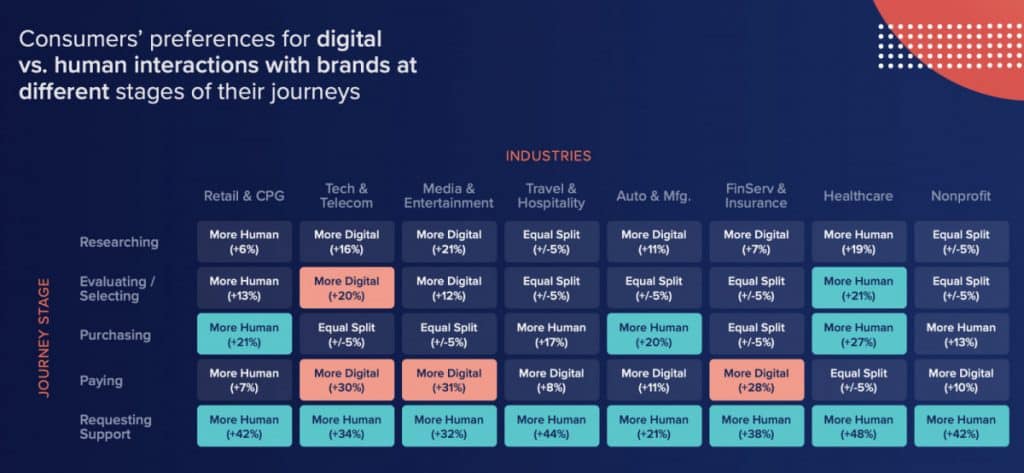Rising Consumer Concerns Over Data Privacy and Security Drive Urge for Responsible CX Practices, says Merkle Global President Pete Stein

In Brief
Pete Stein, Global President of Merkle shed light on the ethical approach brands must embrace when using AI and data technologies to ease CX.

As 2024 gains momentum, consumer-facing brands showcase a shift in focus — from merely delivering elevated customer experiences (CX) to fully embracing customer empowerment in the era of the experience economy.
Merkle, the $2 billion CX agency within Dentsu, recently released its 2024 Customer Experience Imperatives report, emphasizing the need for brands to adapt swiftly to evolving customer needs in an increasingly competitive market.
The survey with business leaders encompassing 2,100 respondents across 18 countries underscores the need for brands to align their approaches with evolving consumer expectations, especially in responsible technology use.
The report’s key findings underscore consumers’ emphasis on cost-effectiveness (55%), convenience (46%) and consistency (40%) over attributes like personalization and enjoyment. The data reflects a consumer-centric approach, indicating a preference for value and experiences aligned with their lifestyles. While 48% of consumers trust brands handling their data, only 38% believe this data contributes to improved experiences.
In a conversation with Metaverse Post — Pete Stein, Global President of Merkle shed light on the ethical approach brands must embrace while inculcating technologies such as AI, to ease customer experiences.
“Data leads us to believe that consumers are well versed in why brands use customer data but don’t see this data lending itself to better experiences. Consumer concerns around AI use include data/privacy/identity protection (58%); whether the data could be hacked to cause harm (57%); whether the technology is recording you (51%); and whether the technology tracked you after you stopped using it (50%),” Stein told Metaverse Post.
“We grouped these concerns into “security” (the former two) and “surveillance” (the latter two). Security over-indexed for older audiences while surveillance over-indexed for younger audiences. This data reinforces the need for brands to use AI responsibly and transparently,” he added.
While brands may overestimate the preference for digital experiences, the report underscores that the ideal state integrates digital and physical experiences. Merkle’s Stein said that when requesting support from a brand, consumers strongly prefer human-led interactions across industries surveyed. This data indicates a reluctance to embrace chatbots or other digital service software.
“Digital touchpoints are generally cheaper and easier to scale than human ones, making them an enticing option for brands looking for efficiency. And digital experiences can replace or augment human ones if done correctly,” he explained. “It’s less about consumers enjoying human interactions and more about the sub-par experiences digital channels currently deliver. To illustrate this point, it’s the rare consumer who wants to call a customer service agent for help with their product; it’s more likely that the chatbot service agent offers a woefully poor experience.”

Consumers Voice Concerns on Data Transparency and Handling
The research revealed that technology advancements have elevated and evolved consumer expectations, with only 2.5 sources of information on average influencing a consumer’s brand decision. Ethical implementation of AI is crucial to creating convenient experiences and building trust.
Only 48% of consumers trust how companies collect or use their personal data. Meanwhile, 38% believe that data usage ultimately benefits their customer experience. Brands tailoring communications and offering personalized experiences find favor with 45% of consumers.
Among these respondents, 56% belong to the age group of 18-34, indicating greater openness to sharing personal data among younger generations.
“This data leads us to believe that consumers are well versed in why brands use customer data but don’t see it lending itself to better experiences. We also surmise that younger generations, who have had the Internet their entire lives, are becoming a bigger part of the buyer landscape,” said Merkle’s Stein.
Consumers prefer authentic connections over mere personalization. Data quality, strategy and a focus on delivering a total customer experience underpin the imperatives. Brands must prioritize customer benefit, utilizing complete and responsible data to foster true customer empowerment.
“You can lose a consumer’s trust on one bad interaction. This is less likely to happen if your data is complete, up to date, treated responsibly, and shared across your organization. And you can’t transact on demographic data alone. Zero-party data helps collect preference data directly from customers, while behavioral data can help fill in the gaps about what you know about a customer,” Merkle’s Stein told Metaverse Post.
“Once you have the data, it must benefit the customer, first and foremost. If a consumer is in-market but not ready to buy, you must provide them with information about your brand, not an “act now” deal,” he added.
Merkle’s research underscores the significant impact of technological advancements on consumer expectations, resulting in a paradigm shift where consumers have greater control and influence over brand interactions. With the margin of error narrowing, brands must align with this new wave of technologically empowered consumers, emphasizing how their offerings enhance customer lives.
Disclaimer
In line with the Trust Project guidelines, please note that the information provided on this page is not intended to be and should not be interpreted as legal, tax, investment, financial, or any other form of advice. It is important to only invest what you can afford to lose and to seek independent financial advice if you have any doubts. For further information, we suggest referring to the terms and conditions as well as the help and support pages provided by the issuer or advertiser. MetaversePost is committed to accurate, unbiased reporting, but market conditions are subject to change without notice.
About The Author
Victor is a Managing Tech Editor/Writer at Metaverse Post and covers artificial intelligence, crypto, data science, metaverse and cybersecurity within the enterprise realm. He boasts half a decade of media and AI experience working at well-known media outlets such as VentureBeat, DatatechVibe and Analytics India Magazine. Being a Media Mentor at prestigious universities including the Oxford and USC and with a Master's degree in data science and analytics, Victor is deeply committed to staying abreast of emerging trends. He offers readers the latest and most insightful narratives from the Tech and Web3 landscape.
More articles

Victor is a Managing Tech Editor/Writer at Metaverse Post and covers artificial intelligence, crypto, data science, metaverse and cybersecurity within the enterprise realm. He boasts half a decade of media and AI experience working at well-known media outlets such as VentureBeat, DatatechVibe and Analytics India Magazine. Being a Media Mentor at prestigious universities including the Oxford and USC and with a Master's degree in data science and analytics, Victor is deeply committed to staying abreast of emerging trends. He offers readers the latest and most insightful narratives from the Tech and Web3 landscape.


















































